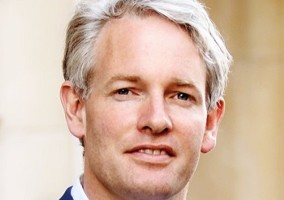The Covid-19 pandemic has shown us how important trust is – in government, healthcare systems and in each other. It’s also exposed a lack of trust and connection many people feel to big institutions.
As life moved onto digital platforms, the importance of connections between people became even more important. It’s true that for many people, a stronger sense of community emerged. In this context, Danny Kruger's report on civil society is a welcome appraisal of the importance of “community” during the Covid-19 pandemic.
He rightly highlights the need for strong infrastructure to support the rising public desire to help others. He rightly says there is a role for charities, communities, business and the state working together. And he rightly recognises that this takes funding - both for charities and the infrastructure that supports charities, community groups and individuals to help out.
Recognise the role of large charities
For me there is more to be said, and harnessed, about the charitable sector.
The charitable sector is diverse, responding to different needs in different ways. That's why we need to recognise the contribution and importance of large charities as much as smaller ones. Medical research charities such as Cancer Research UK, Blood Cancer UK and indeed Anthony Nolan play a vital role in the UK’s research landscape, investing £1.9bn last year alone. This is a role that small community groups could not play (nor should they).
We need to recognise the role charities play in supporting people with specific needs. There are different kinds of “community” and not all of them are related to where you live. If you’re someone receiving a stem cell transplant for example, you are very unlikely to find a neighbour who has had the same experience; but you can connect to others with the same experience through Anthony Nolan’s Patients and Families Forum, or receive advice over the phone from our Patient Services team.
Many charities work in partnership with the public sector. Anthony Nolan was set up 45 years ago to fulfil a need that was not happening in the NHS – matching people in need of a stem cell transplant with strangers willing to donate their cells. Our experience of Covid-19 has very much been that of partnership - with NHS commissioners, the clinical community and with patients themselves.
And very often charities are able to connect to people, respond to their needs and advocate for change. People trust the charities they are involved with, because when we’re doing it right, we’re able to show that we’re independent and working for our beneficiaries.
Now we’ve got to show what we’ll do to help the nation’s recovery
Whilst the Kruger report goes some way to identifying the value of charities, I think there’s still a case to be made about why charities in all our stripes are relevant and the role we play in a rich eco-system alongside government, business and communities. We were crucial to the Covid-19 response, now we’ve got to show what we’ll do to help the nation’s recovery. These are some of my reflections on what we’ll need to consider:
- We need to listen to those who need and use services so that we co-create interventions that best meet their needs. We’ve got to show how beneficiaries are our equal partners: our work reflects their needs; their stories illuminate our asks; their ideas inform our solutions. There’s a risk that we’re only talking to ourselves about the future of the sector – but we should be responding to the way society has changed, the way people live their lives has changed.
- We must demonstrate our impact, going beyond box-ticking and KPIs to show how lives are changed. To do this, we need to shift from defensiveness to confidence in the value we bring, and show our enduring value. That way we can show government why we’re an important part of the solution.
- We need to work as one sector – yes we’re diverse, but at our heart we are all working to effect positive change. We should be unafraid of partnerships and collaboration, with each other, with industry, with government.
- We must learn the lessons of the pandemic. Our culture needs to lock-in the creativity and innovation we’ve shown; be driven by the ethics and transparency that can set us apart; and answer the diversity and inclusion challenge.
Henny Braund is chief executive of Anthony Nolan
Related articles













